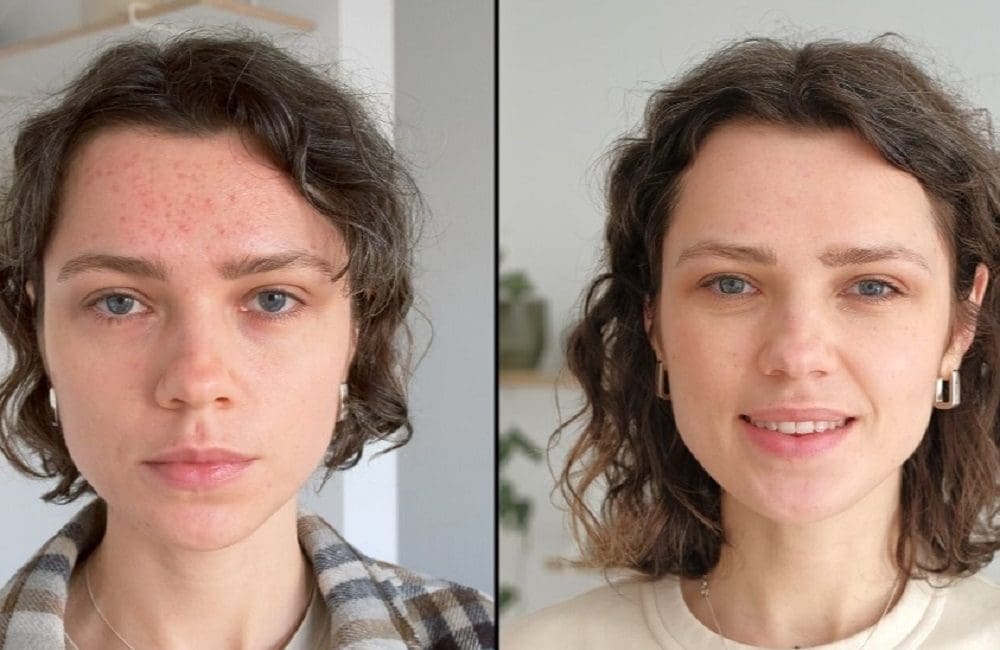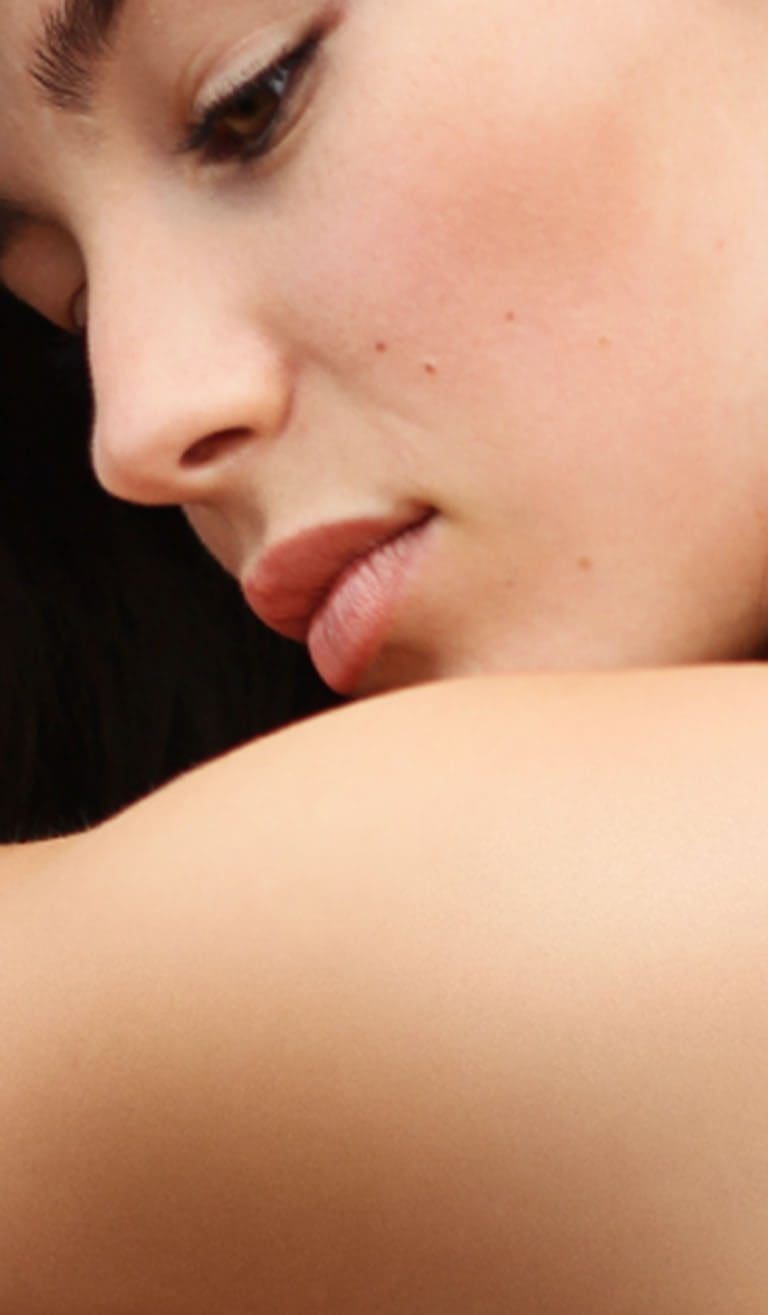Acne Treatments
How Long Does Roaccutane Take To Work?
Many people look to Roaccutane when suffering from skin conditions such as acne. It’s often a quick-solve solution, altering substances in the skin that cause oiliness. Reducing the oiliness in the skin often alleviates blocked pores which are essentially what cause acne and spots.

But how long does Roaccutane take to work? This article will take a look at the factors you need to consider when taking Roaccutane and how long you can expect to see results.
What is Roaccutane?
Roaccutane is a form of medication that contains the substance isotretinoin. This substance reduces the oil the skin produces. The lack of moisture can dry out your skin which is what makes most people particularly susceptible to sun sensitivity when taking the medication. It does, however, prove to be very effective when helping with acne and skin-related issues.
How long does Roaccutane take to be effective?
How long Roaccutane takes to work largely depends on the severity of your skin condition and the dosage you are prescribed. However, based on average effectiveness, Roaccutane usually takes around 2 weeks for visible skin improvements to become apparent. Although not wholly noticeable, this is what most candidates personally notice when they first start on their course. The most obvious signs of improvement come at around the 8 – 12 week mark, with most cases noticing completely clear skin at three months.
To get the best results, experts recommend that people who use Roaccutane take the time to moisturise their lips and face with a non-oily serum. Because the sebum in the skin is significantly reduced by Roaccutane, it causes severe dryness and skin sensitivity. Frequently applying lip balm with healing and cooling ingredients like tea tree, beeswax, and spearmint can help relieve irritation and soreness. Similarly, using suncream and other gentle face creams helps protect you from UV rays emitted from the sun which can help with skin sensitivity.
Am I a Good Candidate for Roaccutane?
If you suffer from acne and want to get rid of the problem quickly, then Roacctane may just be the perfect solution for you. However, there are certain circumstances under which you should not take Roaccutane. These include if you are pregnant, prone to depressive episodes and already suffer from sensitivity to the sun.
Roaccutane is particularly dangerous for unborn babies and can cause severe birth defects. People in their childbearing years should take a pregnancy test before starting this medication and use reliable birth control methods during and for at least 4 weeks after stopping the medication. Nursing mothers should not breastfeed while taking Roaccutane or for at least 8 days after their last dose.
Are There Any Side Effects of Roaccutane?
The major side effects associated with Roaccutane include dry skin, as discussed, but also an increase in hormonal imbalance, sleep issues, problems eating and other behavioural changes. These are very normal, however, they should be watched to ensure they do not worsen. To break it down further, the side effects of Roaccutane use include:
- Dry skin, eyes, and mouth: These side effects are common and usually mild, but they can be bothersome. To alleviate dry mouth, sugarless hard candy or ice chips, chewing sugarless gum, drinking water, or using a saliva substitute can be helpful.
- Mental/mood changes: Roaccutane may cause mental/mood changes, such as depression, anxiety, or thoughts of suicide. If any of these symptoms persist or worsen, it is important to consult a doctor or pharmacist promptly.
- Tingling skin, back/joint/muscle pain, painful swallowing, peeling skin on palms/soles, and severe stomach pain: These symptoms may indicate more serious side effects and medical attention should be sought if any of these symptoms occur.
- Hives, swelling of the mouth or face, breathing problems, or anaphylaxis: These symptoms are rare but can be life-threatening. If any of these symptoms occur, seek immediate medical attention.
- Some side effects may persist: Some side effects from Roaccutane, such as dry skin or vision problems, may persist even after treatment stops. It’s important to discuss any ongoing symptoms with a healthcare professional to ensure proper management.
- Potential permanent problems: In rare cases, Roaccutane may cause permanent problems, such as scarring or vision loss. It’s important to be aware of these potential risks and to seek medical attention if any concerning symptoms arise.
Roaccutane can be an effective treatment for severe acne, but it is crucial to be aware of its potential side effects and to consult a healthcare professional if any concerning symptoms arise.
Regular monitoring and communication with healthcare professionals can help ensure safe and effective use of the medication. Regular blood tests may be necessary to monitor red and white blood cell counts, liver function, blood sugar, and cholesterol levels. These tests can help detect any potential problems early and ensure that the medication is being used safely and effectively.
It’s essential that you get checked by a medical professional before being given a course of Roaccuane and assess your susceptibility to these effects.
Final thoughts
The time it takes for Roaccutane to work can vary, but most people start to see some improvement in acne symptoms within 2 to 4 weeks of starting treatment. However, the peak effect of Roaccutane is typically visible at the 8-12-week mark. It’s important to note that the time it takes for Roaccutane to work can vary from person to person, and some people may experience a worsening of acne before it starts to improve. It’s also crucial to follow the recommended dosage and duration of treatment as prescribed by a healthcare professional to ensure the best possible results.
Additionally, it’s important to be aware of the potential side effects of Roaccutane and to report any concerning symptoms to a healthcare professional promptly. At Botonics, we have some of the most skilled and experienced specialists in the industry when it comes to skincare and other cosmetic enhancements.
Simply get in touch with us today, and we’ll be able to advise if you are a good candidate for Roaccutane.







